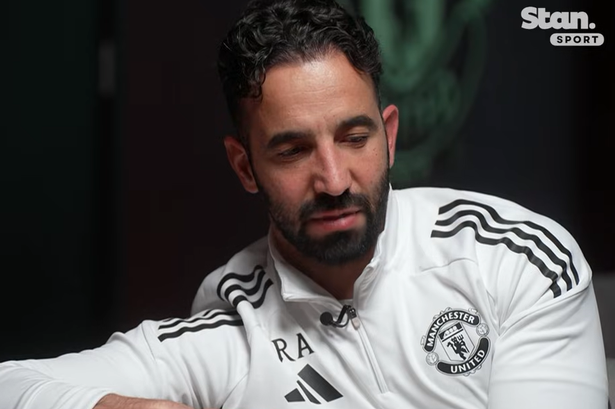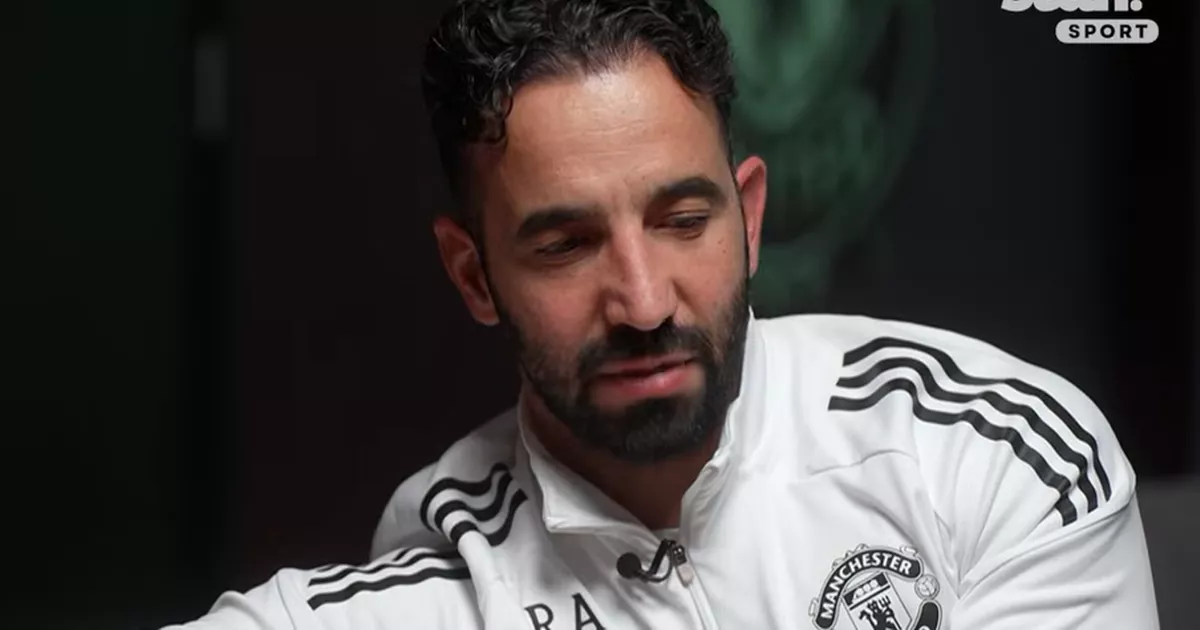Man United must work within the constraints of the Premier League’s Profit and Sustainability Rules (PSR).
13:02, 20 Nov 2025Updated 13:03, 20 Nov 2025
 Amorim discussed young players.(Image: Stan Sport)
Amorim discussed young players.(Image: Stan Sport)
Ruben Amorim has admitted that academy players who are “maybe not good enough” to play for Manchester United could be sold to raise funds to work within the Profit and Sustainability Rules (PSR).
Nick Cox helped raise £100million from academy sales during his six-year stint as head of the youth system, but United’s director of football Jason Wilcox has identified that as an area where improvement can be made.
Cox joined Everton to become their technical director in September. Former Manchester City academy chief Stephen Torpey was hired from Brentford to succeed Cox, and Torpey has been tasked with increasing revenue from academy sales, while also producing players for the first team at Old Trafford.
United have a proud history of giving opportunities to young players, but some believe Amorim has not given enough chances to talented youngsters from the academy system.
Speaking to Stan Sports, Amorim admitted that he found it difficult to prioritise academy players when he was first appointed. He also discussed why selling academy players has become increasingly important in the era of PSR rules.
“First thing, when I arrived last year, it was really tough,” Amorim said. “We had so many games but no time to prepare everything, to look around, to understand the game and the kids that are here, what is the plan for them and talk with all the coaches to try to arrange the perfect space to play.
“Under-18, Under-21, who is going to play where, so we are doing that now. I’m enjoying that part. I think it’s going to be, like any club in the world, but especially here in England with the fair play. The players that you can put in the first team to feel the badge, but also the players that are maybe not good enough to play for Manchester United, but can give us some money when you sell them to try to compensate for the financial fair play to buy different players.
“So I think the future of our club is going to be the academy because, like you said, if you look at the biggest years with the most success was with the academy players.”
Amorim added: “In the current moment, we also have that part if you sell a player from our academy, all the money you can use it to buy another. So I think we need to be really focused on that.
“Our sporting director has a background with the academies and young kids, so we are doing everything to put these kids in the first team for us to be competitive in any way in the Premier League.”
United banked £40m from the sale of Alejandro Garnacho in the summer transfer window. The sale represented ‘pure profit’ in the books and was the highest-ever sale of a United academy graduate.
United received a fixed fee of €30.5million (£25.7m) from Napoli for the sale of Scott McTominay in the summer of 2024. Amorim was asked to explain what he looks for in a young player, and he said: “It’s an honour to play for Manchester United. Sometimes, some kids take that for granted. That is the first thing.
“Then you have to look, to play in the Premier League nowadays, the physicality is something you cannot run from. You need to pay attention to that. Then you need to help the kids to cope with the media attention. That is something that we need to work and be really careful when one kid makes one game, not to make a big deal of that.
“And we had some issues in the past when we did that, and we got that wrong. And then the most important thing is talent and working hard. That is the things we are looking for from our players.”

